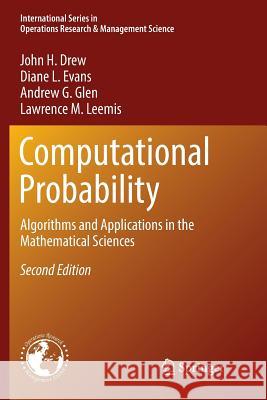Computational Probability: Algorithms and Applications in the Mathematical Sciences » książka
topmenu
Computational Probability: Algorithms and Applications in the Mathematical Sciences
ISBN-13: 9783319827902 / Angielski / Miękka / 2018 / 336 str.
Kategorie:
Kategorie BISAC:
Wydawca:
Springer
Seria wydawnicza:
Język:
Angielski
ISBN-13:
9783319827902
Rok wydania:
2018
Wydanie:
Softcover Repri
Ilość stron:
336
Waga:
0.49 kg
Wymiary:
23.39 x 15.6 x 1.85
Oprawa:
Miękka
Wolumenów:
01
Dodatkowe informacje:
Wydanie ilustrowane











